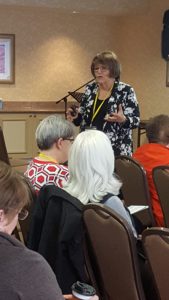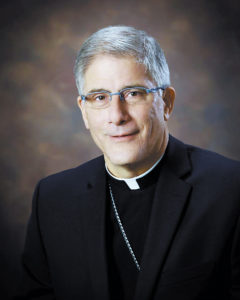
Father Ron Rolheiser
IN EXILE
By Father Ron Rolheiser, OMI
Recently I received a letter from a man who shared that he was still deeply haunted by a story he’d heard in grade-school many years before. One of his religion teachers had read them a story about a priest who went to visit a childhood friend. While staying with his friend, the priest noticed that, while his friend was cheerful and affable enough, he seemed to be harboring some deep, residual sadness. When he asked his friend about it his friend confessed that he “had lost his salvation” because he had felt a call to priesthood when he was young but had chosen instead to marry. Now, he felt, there was no existential redemption from that. He had had a vocation and lost it and, with that, also lost for good his chance at happiness. Though happily enough married, he felt that he would bear forever the stigma of having been being unfaithful in not accepting his God-given vocation.
I was raised on stories like that. They were part of the Catholicism of my youth. We were taught to believe that God marked out a certain vocation for you, that is, to be a priest, a sister, a married person, or a single person in the world, and if you didn’t accept that, once you knew your calling, then you had “missed” or “lost” your vocation and the consequence would an abiding sadness and even the danger of missing heaven. Such were the vocation stories of my youth, and, truth be told, I went to the seminary to become a priest with that lingering as a shadow in my mind. But it was only a shadow. I didn’t enter religious life and priesthood out of fear, though some moral fears did play a part in it, as they should. Fear can also be a healthy thing.
But it can also be unhealthy. It’s not healthy to understand both God and your vocation in terms that can have you missing out on happiness and salvation on the basis on singular choice made while you are still young. God doesn’t work like that.
It’s true that we are called by God to a vocation which we are meant to discern through conscience, through community, through circumstance, and through the talents that we’ve been given. For a Christian, existence does not preceded essence. We’re born with a purpose, with a mission in life. There are many clear texts in scripture on this: Jesus, praying for entire nights to know his Father’s will; Peter, conscripted on a rock being led by a belt that took him where he did not want to go; Paul being led into Damascus and instructed by an elder as to his vocation; Moses being called to do a task because he saw the suffering of the people; and all of us being challenged to use our talents or be stripped of them. We’re all called to mission and so each of us has a vocation. We’re not morally free to live our lives simply for ourselves.
But God doesn’t give us just one chance which, if we miss it or turn down, will leave us sad forever. No. God opens a new door every time we close one. God gives us 77×7 chances and more after that, if needed. The question of vocation is not so much a question of guessing right (What very specifically was I predestined for?) but rather a question of giving oneself over in faith and love to the situation that we’ve chosen (or which more often than not has by circumstance chosen us). We should not live in unhealthy fear about this. God continues to love us and desires our happiness, even when we don’t always follow to where we are ideally called.
Recently I heard a homily in a church in which the priest compared God to a GPS, a Global Positioning System, that is, that computerized instrument, complete with human voice, that countless people have today in their cars and which gives them ongoing instructions on how to get to their destination. One of its features is this: No matter how many times you disregard or disobey its command, the voice never expresses impatience, yells at you, or gives up on you. It simply says “Recalculating”. Sooner or later, no matter how many times you disregard it, it gets you home.
Delightful as is that image, it’s still but a very weak analogy in terms of understanding God’s patience and forgiveness. None of us should be haunted, long-term, by sadness and fear because we feel that we’ve missed our vocation, unless we are living a selfish life. Selflessness rather than selfishness, a life in pursuit of service rather than a life in pursuit of comfort, not guessing correctly, constitutes one’s vocation. Our Christian vocation is to make what we are in fact living – married, priest, religious, single in the world – a life of selflessness and service to others. Happiness and salvation are contingent upon that, not upon guessing correctly.
(Oblate Father Ron Rolheiser, theologian, teacher and award-winning author, is President of the Oblate School of Theology in San Antonio, TX.)



